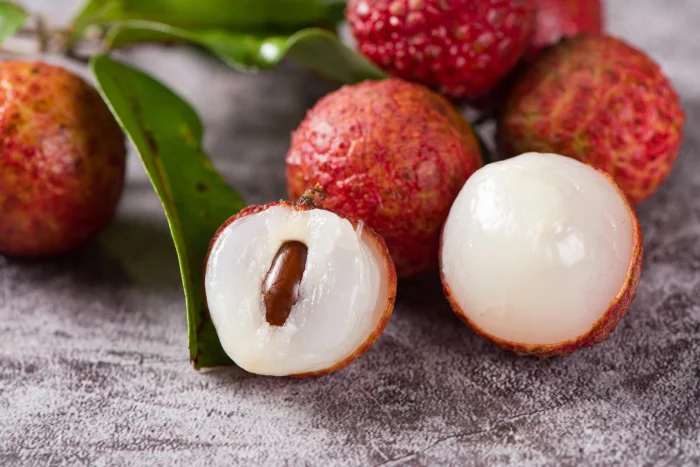Tea has been enjoyed for centuries for its soothing and invigorating properties. For individuals living with diabetes, finding suitable beverages that can help manage blood sugar levels is essential. Tea, with its numerous varieties and potential health benefits, can be a great option. In this article, we will explore different types of teas that are considered beneficial for diabetics, highlighting their potential effects on blood sugar control, overall health, and wellness.
Understanding Diabetes and Blood Sugar Management
Diabetes is a chronic condition characterized by elevated blood sugar levels. Type 1 diabetes is an autoimmune disorder where the body does not produce enough insulin, while type 2 diabetes occurs when the body becomes resistant to insulin or does not produce enough of it. Managing blood sugar levels is crucial for individuals with diabetes to prevent complications and maintain overall health.
While medication, diet, and physical activity are key components of diabetes management, certain foods and beverages, including tea, may have additional benefits in helping regulate blood sugar levels. However, it’s important to note that tea is not a substitute for medical treatment or proper diabetes management. Always consult with your healthcare provider before making any significant changes to your diet or lifestyle.
Green Tea
Green tea, derived from the Camellia sinensis plant, is one of the most widely consumed teas and is known for its potential health benefits. Studies suggest that green tea may have positive effects on blood sugar control, making it an appealing choice for individuals with diabetes.
Potential Benefits of Green Tea:
Improved Insulin Sensitivity: Green tea may help improve insulin sensitivity, allowing the body to use insulin more effectively and regulate blood sugar levels.
Reduced Blood Sugar Spikes: Some research suggests that green tea may help reduce post-meal blood sugar spikes by inhibiting certain enzymes involved in carbohydrate digestion and absorption.
Weight Management: Green tea may assist in weight management, which is important for individuals with diabetes. Maintaining a healthy weight can contribute to better blood sugar control and overall well-being.
Antioxidant Properties: Green tea is rich in antioxidants, such as catechins, which have been associated with various health benefits, including potential protection against cardiovascular diseases.
Cautions and Considerations:
While green tea shows promise in managing blood sugar levels, it’s important to exercise caution and moderation. Green tea contains caffeine, which can affect some individuals differently. Excessive caffeine intake may cause sleep disturbances, increased heart rate, or interact with certain medications. Moreover, some studies suggest that excessive consumption of green tea extracts may have adverse effects on the liver. Therefore, it’s best to enjoy green tea in moderation and consult with a healthcare professional if you have any concerns or pre-existing conditions.
Herbal Teas
Herbal teas are caffeine-free infusions made from various plants and herbs, providing a wide range of flavors and potential health benefits. Here are a few herbal teas that are commonly enjoyed and may offer some advantages for individuals with diabetes:
1. Chamomile Tea
Chamomile tea is renowned for its calming properties and potential benefits for sleep quality. While it may not directly impact blood sugar levels, adequate sleep is important for individuals with diabetes as it supports overall health and helps regulate hormones involved in blood sugar control.
2. Cinnamon Tea
Cinnamon is a spice with a distinct flavor that has been associated with potential blood sugar regulation. Some studies suggest that cinnamon may help improve insulin sensitivity and reduce fasting blood sugar levels. While cinnamon tea can be a flavorful choice, it’s important to use true cinnamon (Ceylon cinnamon) and avoid excessive consumption, as certain compounds in cinnamon may be harmful in large amounts.
3. Dandelion Tea
Dandelion tea is made from the roots or leaves of the dandelion plant and is known for its potential liver-protective properties. While more research is needed, some studies suggest that dandelion tea may support liver health, which is crucial for individuals with diabetes as the liver plays a role in blood sugar regulation.
4. Hibiscus Tea
Hibiscus tea is derived from the vibrant flowers of the hibiscus plant. While it may not directly impact blood sugar levels, hibiscus tea has been associated with potential benefits for blood pressure management. High blood pressure is a common comorbidity in individuals with diabetes, and managing it is essential for overall cardiovascular health.
Other Considerations and Cautions:
While herbal teas are generally safe to consume, it’s important to consider any potential interactions with medications or existing health conditions. Some herbal teas may interfere with the absorption or metabolism of certain medications, so it’s wise to consult with a healthcare professional if you have any concerns. Additionally, some herbal teas may have diuretic effects or interact with other herbal supplements, so it’s important to exercise moderation and be mindful of your individual needs and reactions.
Brewing Tips and Enjoyment
To make the most of your tea experience, consider the following tips:
Quality and Sourcing: Choose high-quality tea leaves or tea bags from reputable sources to ensure optimal flavor and potential health benefits.
Brewing Time and Temperature: Follow the recommended brewing time and temperature for each type of tea to extract the best flavors and potential health properties.
Avoid Adding Sweeteners: To keep your tea low in added sugars, enjoy it without sweeteners. If desired, you can add a squeeze of lemon or a splash of unsweetened plant-based milk for a hint of flavor.
Variety and Exploration: Embrace the variety of teas available and experiment with different flavors and combinations to find your preferences. From green tea and herbal infusions to white tea and oolong tea, there is a wide world of tea waiting to be explored.
Conclusion
While certain teas may offer potential benefits for individuals with diabetes, it’s important to approach tea consumption as part of an overall balanced lifestyle. Remember that tea is not a substitute for medical treatment, proper diabetes management, or a healthy diet and exercise regimen. It’s essential to work closely with a healthcare professional to develop an individualized plan that considers your unique needs and health status.
Incorporating teas, such as green tea, chamomile tea, cinnamon tea, and hibiscus tea, can be a flavorful and enjoyable addition to your daily routine. By savoring these beverages in moderation and being mindful of their potential effects, you can explore the diverse world of teas while supporting your overall well-being.




















